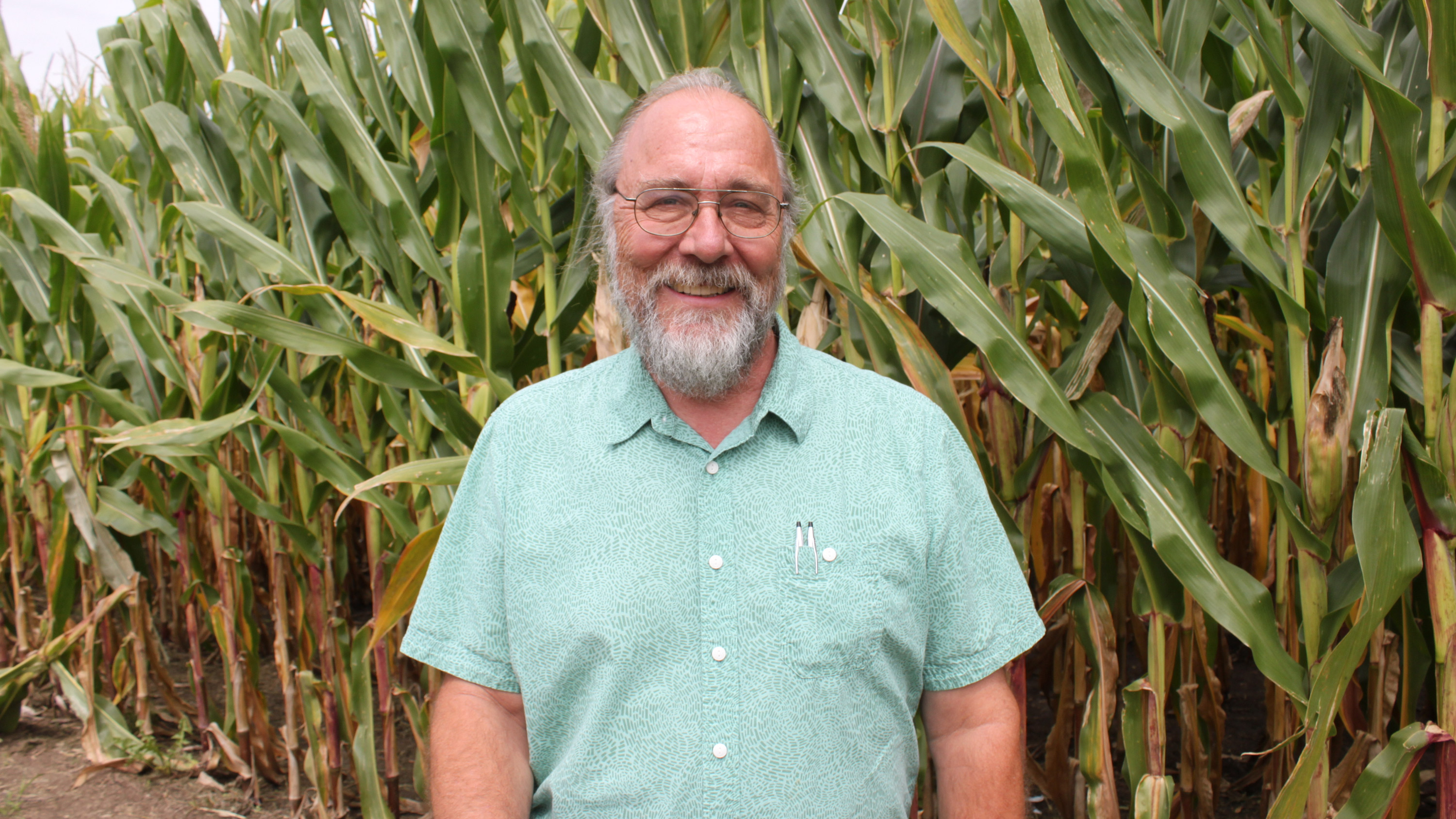
by Lana Koepke Johnson | Agronomy and Horticulture
Timothy J. Arkebauer, University of Nebraska–Lincoln agronomy and horticulture professor, retired June 30 after a 33-year career of research and teaching in the Department of Agronomy and Horticulture.
A native of Milwaukee, Wisconsin, Arkebauer became interested in botany in second grade when he grew his first bean plant from seed.
He earned a Bachelor of Science Honours degree in botany from Michigan State University in 1979, a Master of Science in horticulture in 1981 from the University of Florida in Gainesville, and a doctoral degree in agronomy from Nebraska in 1986.
After completing his doctoral degree, Arkebauer worked as a postdoctoral research associate in agronomy at Nebraska for one year and at San Diego State University in the systems ecology research group for two years.
In 1989, Arkebauer began his career at the University of Nebraska–Lincoln as an assistant professor of agronomy with research and teaching responsibilities. In 1995 he was promoted to associate professor of agronomy and in 2004 to professor of agronomy and horticulture.
Arkebauer’s career focused on soil-plant-atmosphere relationships, gas exchange properties of leaves and canopies, plant water relations, modeling plant growth and development, and water and radiation use efficiencies. He also worked on leaf and canopy optical properties and their relationships with plant traits including chlorophyll contents and gross primary production.
“I’ve been involved in many cooperative research projects, most of which were field projects with colleagues in the School of Natural Resources in agricultural meteorology and remote sensing,” Arkebauer said.
Arkebauer is most proud of the funding he and his team have obtained from the United States Department of Energy since 2001 for establishing and maintaining three Ameriflux sites at Eastern Nebraska Research, Extension and Education Center near Mead.
Nebraska’s sites and scientists are part of a world-wide network that is quantifying the exchange of water and carbon between the earth’s surface and the atmosphere continuously. Using the data, the researchers are investigating factors that control these exchanges to understand terrestrial ecosystems in our changing world.
“I've worked with Tim since he was first hired at Nebraska. What impressed me the most about him was his curiosity about fields other than his own. He was always willing to learn about other areas of study and especially, to find out how they related to his own work,” said Dave Billesbach, research assistant professor in Biological Systems Engineering.
Every fall for the past 32 years, Arkebauer taught AGRO 807 Plant Water Relations. This course is a quantitative study of water relations in the soil-plant-atmosphere system and include basic physical processes, which describe the movement of water in the soil and the atmosphere, and the physiological processes, which describe water movement inside of the plant. Results from integrative models are used to study the relative importance of environmental versus physiological factors for several plant-environment systems.
Arkebauer also taught AGRO 131 Introduction to Plant Science for four years. He taught AGRO 327 Plant Physiology lectures and coordinated and supervised postdoctoral researchers in teaching the labs for one year.
He served as the major professor in advising 11 master’s and doctoral students and was on 51 master’s and doctoral supervisory committees.
“My goal as a professor was to teach, work with and mentor students interested in field plant physiology research,” Arkebauer said.
Arkebauer serves as a committee member of SpecNet and on the Li-Cor Bioscience advisory committee.
Arkebauer’s plans in retirement is to travel.
“I’m excited to visit new places especially in the fall. I haven’t been able to travel extensively during the fall due to my teaching responsibilities,” Arkebauer said.
More details at: https://go.unl.edu/0o3n